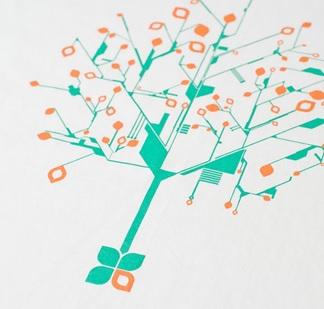
Have you ever wondered how to translate knowledge into creative visual naratives? Would you like to learn to do that with an interdisciplinary team of art students and creative industry professionals? Then you are invited to join Camera Interactiva - a 6 month intensive programme and competition, developed by a Centre for the Humanities, in cooperation with University partners (Descartes Centre and Institute for Cultural Inquiry), the HKU University of the Arts and Dutch Film Festival (NFF). The deadline for submitting your application has now been extended to 31 July 2015, and participants from all over the country are welcome!
ABOUT CAMERA INTERACTIVA
Camera Interactiva is a creative competition for a wide-ranging group of participants from the arts, academia and creative industries. The goal of this competition is to create excellent visual stories that translate different forms of socially relevant knowledge into visual narratives, within the theme of cultural citizenship. The aim of the intensive course is to provide training that will combine reflection on the methods and protocols of knowledge production with techniques of digital story-telling. The course will explore both theoretical and practical approaches to the challenge of visual story-telling. For more information please download the full call at our website.
OPPORTUNITY FOR CREATIVE AND INTELLECTUAL STIMULATION
Aside from the opportunity to be awarded funding of 3,000 euro for future development of their project, participants will have the opportunity to work with a selected number of distinguished academics and pioneers in digital story-telling techniques. The training will take place in an engaging and challenging context, designed to push the selected participants out of their comfort zone and towards new ways of thinking.
COLLABORATION
In the Camera Interactiva project, it is not only about what stories are told, but also how they are told and who is actually telling them and through what sort of media. The training that short-listed candidates will receive aims at helping them to broaden their understanding of the chosen subject matter and develop alternative, critical insights about it.
The other crucial component of the training programme aims at building up expertise on which media platforms are most relevant for the story-telling.The format that has been chosen to achieve this is to set up collaborative groups of three members: one academic student, an arts student and a starter from the field of creative industry. Each member represents a key feature of the Camera Interactiva programme: knowledge production, the narrative core of the story and digital story-telling techniques.
THE PROGRAMME
The programme consists of several phases.
- The initial research phase starts in September, in which you will meet your group and coaches, start researching first ideas and come up with a project to take you into the intensive training week.
- This intensive training week will start during the Nederlands Film Festival at the end of September 2015 (September 24 and October 9), when the pre-selected candidates will have the chance to participate in workshops on storytelling, world building and games.
- In the week that follows, the intensive training programme will begin. Participants will be coached by a team of guest speakers, thinkers and practitioners — artists, academics, writers, filmmakers and curators. They will explore a targeted range of issues from research, authorship, art activism and social practice to audience engagement and experience. Regular group meetings and feedback session will put this new knowledge into practice.
- During October and November 2015, all the groups will work individually to further develop their projects, with occasional meetings with coaches and a test pitch. At the final pitch, three groups will have the opportunity to win up to 3,000 euro seed money to further develop their project.
- From December onwards, the winning groups should develop their projects further to screen and present their final work during the Lustrum week of the University in April 2016.
WHO CAN APPLY?
The competition is open to the academic students, arts students and creative industry professionals from the Netherlands. People eligible to apply are: students from the field of Humanities and/or Sciences, practitioners form the creative industries, filmmakers, educators, artists, producers and curators interested in art as social practice. Note that each application has to be individual and will be assessed separately.
The three-member teams will be formed by the selection committee at a later stage, on the basis of the applications, though applicants may indicate a preference for pairing if they wish.
Academic students may use this trajectory as an internship, arts students may use it as their educational project. The programme will be held in Dutch and English.
FORMAT OF THE APPLICATION
The application consist of a letter or expression of interest that states clearly who you are, your interest in working on citizenship at the intersection of digital storytelling and knowledge production and why you wish to participate in this porgramme.
Add a 1-page CV and eventual links to previous and/or current work if applicable.
Please send the application no later than July 31st to the Centre for the Humanities.